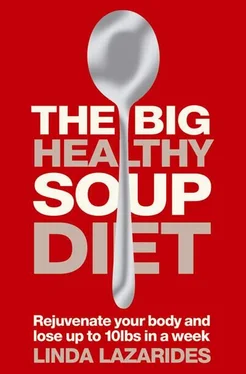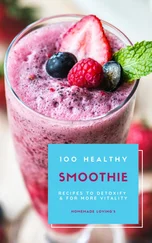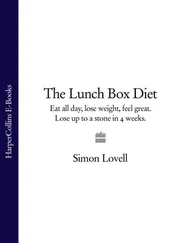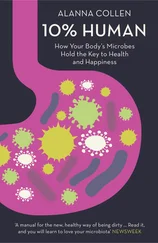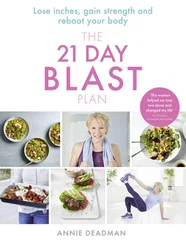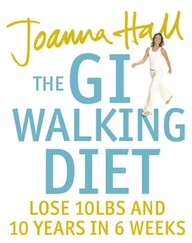FOODS THAT NEED TO BE RATIONED
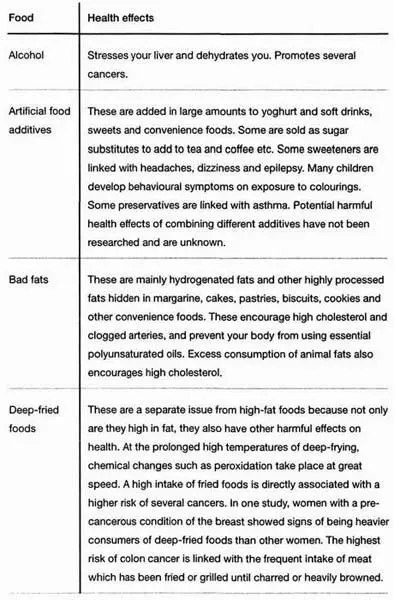
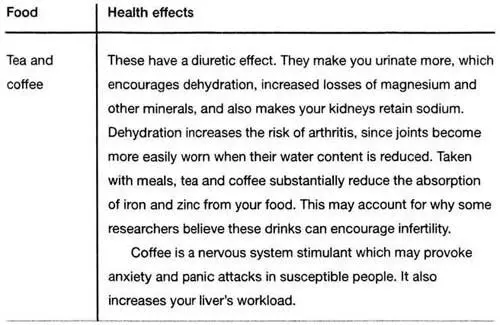
Don’t be dismayed at this long list. Of course you can still be healthy without giving up all these foods! Some people even feel guilty if they buy butter for their children and eat some of it themselves. That is a natural reaction, but it is actually a huge over-reaction. Rationing is recommended – total deprivation is not! I eat most of these foods myself, but as occasional treats rather than as staple parts of my daily diet.
The easiest way to ration is toconsume so much of the right foods that you don’t feel as much need for the wrong ones. If youhave a big problem with craving sweets, chips, fries and pastries, try eating a bowl of home-made soup first. It is one of the best ways to take the edge off cravings.
WE DO NEED TO EAT SOME SUGAR EVERY DAY, DON’T WE?
This is not at all true as all the carbohydrate you eat gets turned into sugar by your body. If you still need more you can turn protein and parts of the fat molecule into sugar. To get enough energy there’s no need to consume any sugar or sugary foods at all.
AMAZING FOOD AND HEALTH DISCOVERIES
2003 Article from the Division of Preventive Medicine, Harvard Medical School, Boston, Massachusetts, USA
Heart disease is still the leading cause of disease and death worldwide. Statistics show that populations who consume more fruits and vegetables often have a lower risk of developing heart disease, high blood pressure and diabetes. Recent large research studies show that the higher the fruit and vegetable intake, the lower the rate of heart attacks and strokes. Many nutrients in fruits and vegetables, including fibre, potassium and folic acid, help to reduce the risk. The low glycaemic index and calorie content of these foods may also play a part. In view of these benefits, the researchers believe that not enough effort and resources are currently being devoted to encouraging dietary changes in Western society.
Bazzano L.A., Serdula M.K., Liu S. Curr Atheroscler Rep. 2003 Nov;5(6):492-9.
2004 Article from the UCLA Center for Human Nutrition, Los Angeles, USA
An intake of 400-600 grams (1-1 ½ lbs) of fruits and vegetables per day brings lower rates of many common forms of cancer. Diets rich in plant foods also bring a lower risk of heart disease and chronic diseases of ageing. Red foods such as tomatoes contain lycopene, which has special benefits for prostate health. Green foods, including broccoli, Brussels sprouts and kale, contain glucosinolates, which protect against cancer. Garlic and other foods in the onion family contain allyl sulphides which may inhibit cancer cell growth. Substances in green tea and soybeans also have health benefits. Everyone would potentially benefit from consuming one serving of each of the seven colour groups daily. The United States National Cancer Institute and American Institute for Cancer Research already recommend five to nine servings of fruit and vegetables per day.
Heber D.J Postgrad Med. 2004 Apr-Jun;50(2):145-9.
2004 Article from the Department of Cardiology, All India Institute of Medical Sciences, New Delhi, India
The role of diet and nutrition in heart disease and stroke has been extensively researched. Enough evidence is available from population studies to show that the right diet can reduce the risk of heart disease. Trans-fats and saturated fats increase the risk, while polyunsaturated fats are protective. Sodium raises the blood pressure, while foods richin potassium reduce the risk of high blood pressure and stroke. Regular frequent consumption of fruits and vegetables protects against high blood pressure, heart attack and stroke. It is time to translate this knowledge into government policies that promote healthy diets and discourage unhealthy diets.
Srinath Reddy K., Katan M.B. Public Health Nutr. 2004 Feb;7(1A):167-86.
1994 Article from Loma Linda University, California, USA
Recent research shows that frequent consumption of nuts offers protection against heart attacks. Nuts help to lower cholesterol, and also contain nutrients which protect in other ways.
Sabate J., Fraser G.E. Curr Opin Lipidol. 1994 Feb;5(1):11-6.
2004 Research Study from the London School of Hygiene and Tropical Medicine, UK
South Asian women from India eat a diet rich in phyto-oestrogens (plant) – not from soy foods but from beans, lentils and vegetables. The dietary intake of phyto-oestrogens was compared between 240 South Asian women living in England with breast cancer, and 477 similar women without breast cancer. It was found that among the women with the highest intake of phyto-oestrogens there were only half as many cases of breast cancer as among those with the lowest intake. The researchers concluded that phyto-oestrogens help to protect against breast cancer.
dos Santos Silva I., Mangtani P. and colleagues. Cancer Causes Control. 2004 Oct;15(8):805-18.
2004 Article from the Hallelujah Acres Foundation, Ellensburg, Washington, USA
Scientists estimate that 30-40 per cent of all cancers can be prevented by lifestyle and dietary measures alone. Consuming too much low-fibre food and red meat, and a poor balance of essential polyunsaturated fats, increases the risk of developing cancer. Consuming abundant fruits and vegetables lowers cancer risk. Garlic, onions and cruciferous vegetables such as broccoli and Brussels sprouts are especially beneficial. Nutrients that protect against cancer include selenium, folic acid, vitamin B12, vitamin D, chlorophyll, and antioxidants such as carotenoids. Taking supplements of digestive enzymes and probiotics is also helpful. Individuals who follow these guidelines are likely to have a 60-70 per cent lower risk of developing breast, colon or prostate cancer, and also a reduced risk of contracting other forms of cancer.
Donaldson M.S. Nutr J. 2004 Oct 20;3(1):19.
2005 Research from the American Cancer Society, Atlanta, Georgia, USA
In this study, 148,610 adults aged 50-74 were asked to provide information on their consumption of meat in 1982 and again in1992. They were observed from 1992 to 2001 and, during this time, 1,667 of them developed cancer of the colon or rectum (colorectal cancer). Those with colorectal cancer were found to be the highest long-term consumers of red meat and processed meats. The researchers concluded that prolonged high consumption of red meat and processed meats may increase the risk of cancer in the lower part of the large intestine. These findings have also been confirmed by other researchers.
Chao A., Thun M.J. and colleagues. JAMA . 2005 Jan 12;293(2):172-82.
2004 Research from Clemson University, SC, USA
Plants are known to contain anti-cancer compounds. The initial step in the formation of a cancer is damage to a cell, which leads to a mutation in one of its genes. Fresh juices and extracts from strawberries, raspberries and blueberries were evaluated for their ability to inhibit mutations induced by mutagens such as benzopyrene – a mutagen found in charred meat. The researchers found that juice from strawberries, raspberries and blueberries significantly inhibited the action of mutagens.
Читать дальше
